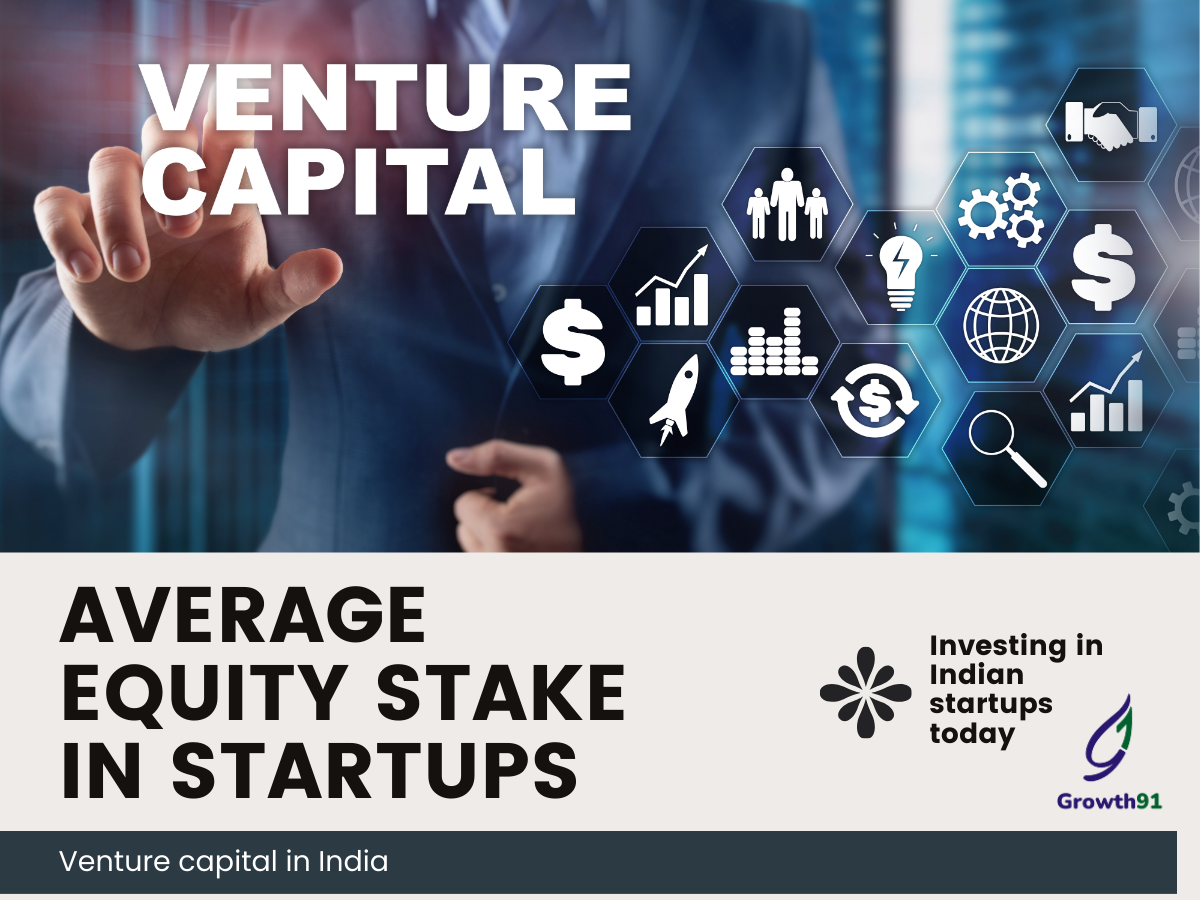
Introduction
Ever wondered how much of your startup you’d need to give up to secure funding? Understanding what venture capitalists (VCs) expect in return for their investment is crucial for Indian entrepreneurs. Whether you’re planning to invest in Indian startups or are an entrepreneur seeking funding, this guide will walk you through the average equity stake VCs look for, why they do so, and how platforms like Growth91 make the process more accessible.
Understanding Venture Capital
Venture capital is a type of private equity financing provided to startups and small businesses with high growth potential. Think of it as the fuel that helps a rocket (your startup) launch into space. But this fuel isn’t free. In exchange, VCs take a slice of the pie, known as an equity stake.
What Is Equity Stake?
Equity stake refers to the ownership percentage a VC takes in your startup in return for their investment. For instance, if a VC invests ₹10 crore and takes a 20% equity stake, they own one-fifth of your business.
Why Do VCs Seek Equity Stakes?
VCs don’t just give away money for fun. They invest to make a profit when your startup grows, scales, or gets acquired. Their equity stake acts as a share in your future success, like a ticket to a blockbuster movie they hope will be a box-office hit.
Average Equity Stakes in Indian Startups
In India, the average equity stake sought by VCs typically ranges from 15% to 30%.
Early-Stage Startups: VCs often seek 20-25% equity. These startups are high-risk but offer high-reward potential.
Growth-Stage Startups: At this stage, VCs may take 15-20% since the business already shows traction and reduced risk.
Late-Stage Startups: Equity stakes can shrink to 10-15%, as startups at this stage require less funding and are closer to profitability.
Factors Influencing Equity Stake
Several factors determine how much equity a VC will ask for:
Startup Valuation: Higher valuation means a lower equity stake for the same investment.
Market Potential: Startups in booming sectors like fintech or edtech attract better terms.
Team Strength: A strong, experienced founding team often negotiates a smaller stake.
Business Model: Scalable models are more attractive to VCs, potentially reducing the equity stake required.
Stages of Funding and Equity Stake
The amount of equity sought varies across funding stages:
Seed Stage: High stakes (up to 30%) due to higher risk.
Series A: Equity stakes range from 20-25%.
Series B and Beyond: Stakes decrease progressively as the startup grows and stabilizes.
How Indian Startups Negotiate Equity
Negotiating equity isn’t just about the numbers. It’s about aligning with VCs who bring more than just money to the table. Founders often seek VCs who can offer mentorship, industry connections, and long-term support.
VC Expectations vs. Founder Interests
There’s often a delicate balance between VC expectations and founder interests. VCs want significant equity for high returns, while founders aim to retain control. Clear communication and legal counsel help bridge this gap.
The Role of Startup Investing Platforms
Startup investing platforms like Growth91 simplify the process for both founders and investors. These platforms provide a transparent marketplace for funding and often include tools to help founders retain fair ownership.
Key Takeaways for Entrepreneurs
Understand your startup’s valuation before pitching to VCs.
Consider the long-term impact of equity dilution.
Use platforms like Growth91 to connect with the right investors.
Growth91: Simplifying Startup Investing
Looking for a reliable startup investing platform? Growth91 empowers entrepreneurs to connect with investors and secure funding without unnecessary hassle. Whether you’re looking to invest in Indian startups or raise funds for your own, Growth91 offers a transparent, user-friendly experience for all stakeholders.
Conclusion
Understanding the equity stake VCs seek is crucial for making informed decisions about funding. Whether you’re an entrepreneur or an investor, knowing the typical ranges, influencing factors, and negotiation strategies can give you a significant edge. With platforms like Growth91, startup investing in India has never been more accessible.

Leave a Reply